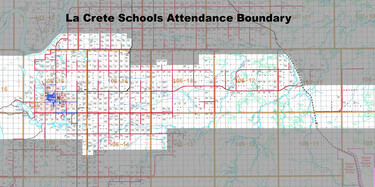Success Starts With You
About
Our fundamental purpose is to achieve optimal learning for all students in their pursuit of academic and personal success in a safe and caring environment.
School & Office Hours
School doors will be open at 8:15am with office hours from 8:30 am to 4:00 pm each day. We request that student not arrive prior to 8:15 am; especially during cold weather as the school will not be open.
Trustees
Tim Driedger
Benjamin Friesen
Mission
Our fundamental purpose is to achieve optimal learning for all students in their pursuit of academic and personal success in a safe and caring environment.
2024-2025 Parent Council
Parents
John Unrau (Chair)
Isaac Zacharias
Helen Buller (Secretary)
Nettie Krahn
Andrew Zacharias
Peter Unrau
Darlene Wieler
Kathrine Martens
Carol Martens
Chad Fyke
Benj Peters
Lauren Gallant (Student Rep)
Trustees
Tim Driedger
Benj Friesen
School Members
Vanessa Beringer (Principal)
Rachel Dika (Assistant Principal)

Cross boundary transportation will not be provided for students attending schools out of their attendance area. However, subject to space availability on the bus, students may ride to a school out of their area from a location on an existing bus route. Existing bus routes will not be modified to provide transportation services to students outside their attendance area.
FVSD Scent Aware Information
For the general population, exposure to scents is not typically problematic. However, from time-to-time, the presence of perfumes and other scented products can present indoor air quality concerns that may affect a person’s comfort. Furthermore, for a small portion of the general population, scented products may present a risk of health hazard.
For individuals with pre-existing conditions such as chemical sensitivities or sensitizations, asthma or allergies, exposure to some odours can cause a range of ill health effects. Some reported symptoms include: headaches, dizziness, lightheadedness, nausea, fatigue, weakness, insomnia, confusion, loss of appetite, depression, anxiety, upper respiratory symptoms, shortness of breath, difficulty with concentration, and/or skin irritation.
Scented products more commonly include the following:
● Personal hygiene products, such as shampoo, conditioner, hairsprays, deodorants, colognes, aftershaves, fragrances, perfumes, lotions, soaps, cosmetics and creams;
● Industrial and household chemicals and cleaners;
● Air fresheners, such as deodorizers, potpourri, oils and candles; and
● Various household products.
Raising the scent-awareness of our staff, students and public
Employees, students, and visitors will be informed of this guideline through signs posted in Fort Vermilion School Division #52 schools and buildings, website information, newsletters, and healthy workplace promotional materials.
Minimizing the use of, and exposure to, scented products
● Persons entering our schools and buildings will be encouraged to use scent-free products.
● Wherever possible in our schools and buildings, scent-free products should be used. The purchase and use of “unscented” products will be preferred over scented substitutes where possible. This will involve a review of Material Safety Data Sheets for commercial products currently used and those intended for use, as well as examination of product samples to ensure that the ingredients are unscented.
● Health and Safety 2016 Revision
● Wherever possible, maintenance, renovation, etc. with which an “atypical” odour is associated should be scheduled to occur at times of reduced occupancy.




















